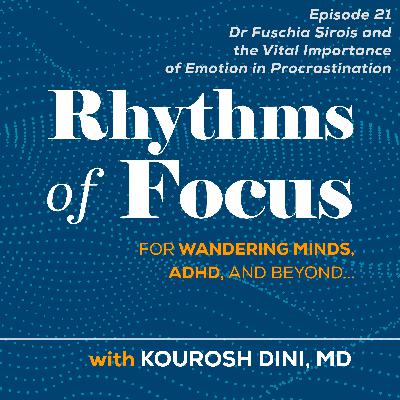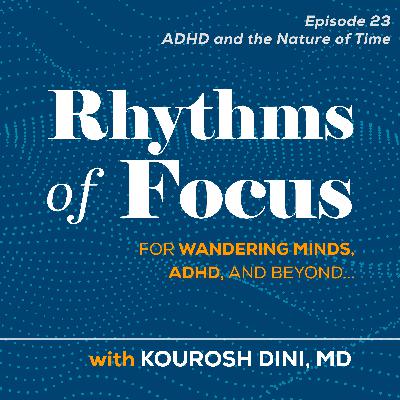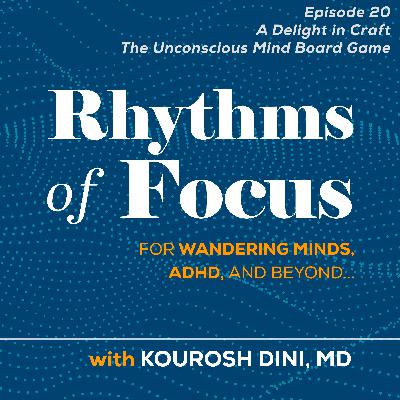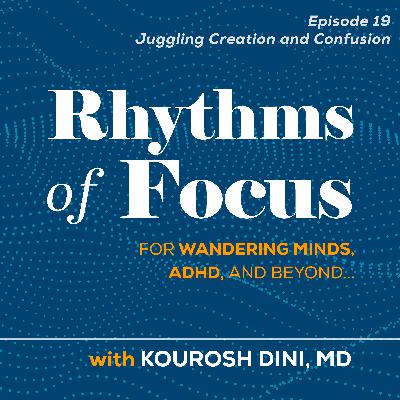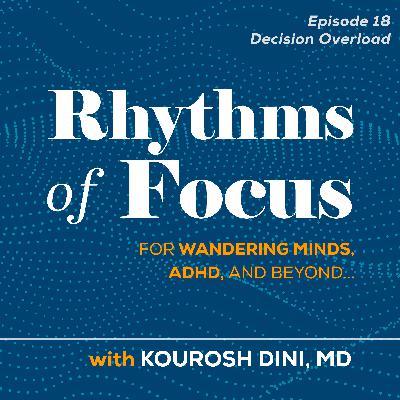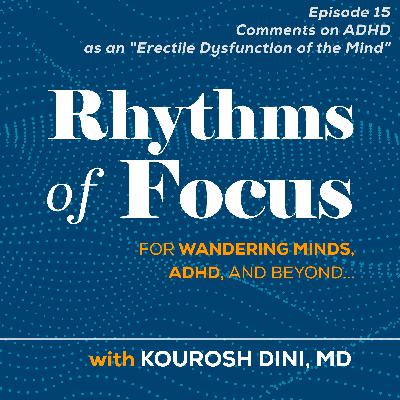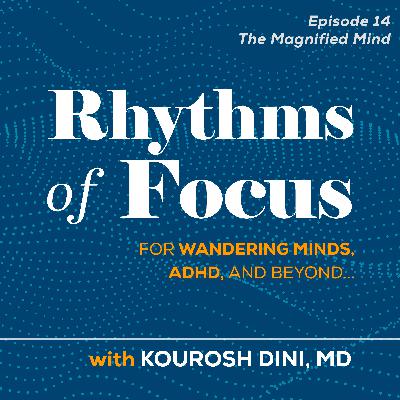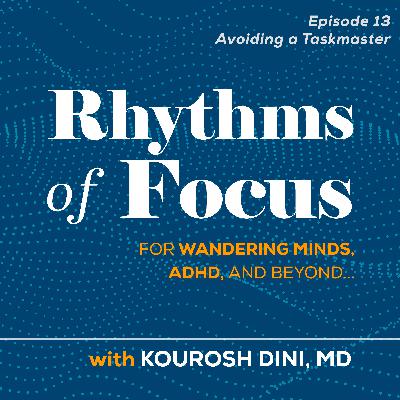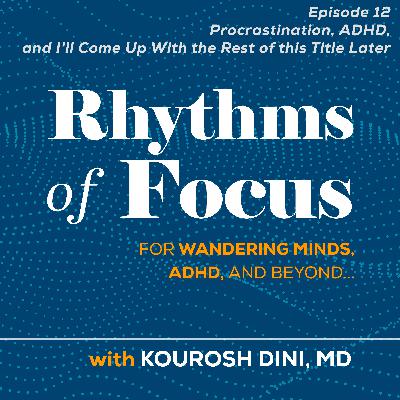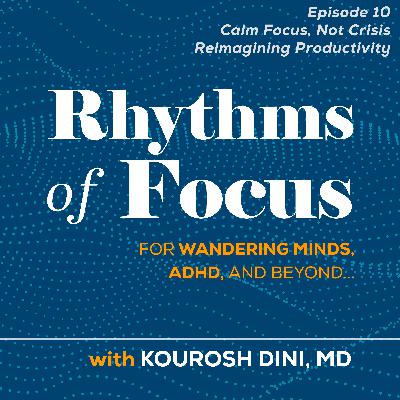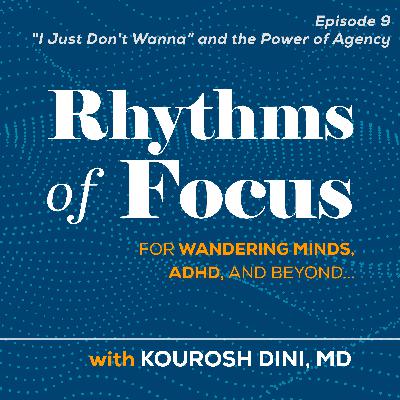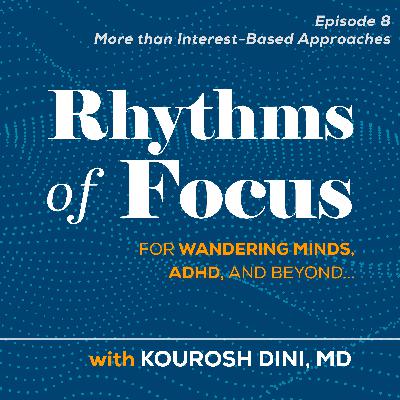Dr. Fuschia Sirois and the Vital Importance of Emotion in Procrastination
Description
Exploring Procrastination, Self-Compassion, and Emotional Management with Dr. Fuschia Sirois
In this episode, we delve into the roots of procrastination with Dr. Fuschia Sirois, a professor of social and health psychology at Durham University, who has over 25 years of research experience in procrastination and its relationship to emotions. The discussion covers how self-compassion can play a critical role in managing procrastination, the impact of societal norms on our productivity, and the importance of addressing emotional responses to improve motivation and reduce procrastination. Dr. Sirois introduces her TEMPO toolkit, designed to help individuals manage procrastination by addressing the emotional causes behind it, providing practical strategies and exercises for better emotional regulation. This episode offers valuable insights for anyone looking to understand and overcome procrastination through a compassionate and emotionally intelligent approach.
00:00 Introduction: The Mystery of Avoidance
01:45 Special Guest Introduction: Dr. Fuschia Sirois
02:02 The Procrastination Conference Connection
02:36 Understanding Self-Compassion
03:51 The Role of Responsibility in Self-Compassion
08:46 Cultural Norms and Self-Criticism
16:46 Global Perspectives on Self-Compassion
27:25 Procrastination and Social Norms Research
28:39 Generational Differences in Procrastination
29:14 Self-Perception and Social Norms
30:07 Financial Procrastination and Its Impact
32:26 Introducing TEMPO: A New Tool for Managing Procrastination
33:35 Understanding and Addressing Emotional Roots of Procrastination
39:59 The Role of Perfectionism and Creativity
49:39 Planning, Risk, and Self-Compassion
52:02 Defensive Pessimism and Contingency Planning
54:41 Conclusion and Resources
Tags
Procrastination, Self-Compassion, Emotional Intelligence, Productivity, Mental Health, Overcoming Perfectionism, Personal Development, Behavioral Psychology, Mindfulness, TEMPO Toolkit
https://durhamuniversity.qualtrics.com/jfe/form/SV_eJzXFb6SBwNPI46
https://www.youtube.com/@fuschiasirois601
Introduction: The Mystery of Avoidance
What is it that makes us avoid the thing to do? Is it the fault of social media? Are we inherently lazy? Is there just something wrong with me? Well, what if I were nice to myself? Would that do something, and how could I even do that in some way that I felt genuine? Would that do anything?
Special Guest Introduction: Dr. Fuschia Sirois
Dear listeners, I've got another special treat for you today. We're joined today by my special guest, Dr. Fuschia Sirois. Fuchsia's, a professor in social and health psychology at Durham University, with over 25 years of research in procrastination and its relationship to emotions.
We'd connected actually at the procrastination conference in Utrecht, Netherlands, in the summer of 2025.
A lovely city, by the way.
Understanding Self-Compassion
At the end of one of the lectures, sitting in the audience, she had made this comment about self-compassion, and that self-compassion shows up in recognizing responsibility, taking it on, and maybe the pain that can come with that. That's where self-compassion really starts to shine. I thought, I get it. This makes sense.
So later on that day, I approached her, had a conversation with her, and she really had this way of, um. Recognizing the importance of emotion, not just in procrastination, which is her field of research, but really in who we are.
Again, it really resonated, and I said to myself, I've gotta have her on the show. So here we are. We had this wonderful conversation spanning from individual to societal, from the creative task to the concrete task, and much more. I hope you enjoy it as much as I did.
Here it is.
Today, we've got, uh, uh, Fuchsia Sirois on the podcast today. Am I pronouncing your name correctly, by the way?
Yeah, that's perfect. Yeah.
Oh, wonderful. Fuschia, Fuschia I met in, um, uh, at the, the procrastination conference in just, we had recently in 2025 and in summer, and we may have met even earlier that Did you go to the procrastination conference that was in Chicago? I can't remember if you.
No, I didn't get to that one. Unfortunately. I was sort of not. I really wanted to go, but I think I was in the middle of moving or something, and I wasn't able to come.
The Role of Responsibility in Self-Compassion
Ah, okay. Very good. So this was our first time meeting then. Fuscia is a, uh, a, a social health, um, psychologist at, uh, Durham University. Um, and, uh, professor there. And, um, what got me going was I, with, with fuchsia, I think, uh, we were sitting at, in a lecture and, uh, at the procrastination conference, and you had said something that just kind of struck me, which was about the relationship between self-compassion and recognizing your own responsibility. Do, do you remember something about this?
I think it, it was maybe, if I'm remembering the correct instance, I think it was around the idea that, um, with self-compassion, really doesn't kick in. It doesn't actually, it's. It's not activated until people are struggling with something, until they're realizing, you know, coming face to face with their own personal shortcomings or flaws or difficulties, you know?
Um, it's not like you walk around going, Oh, I'm being self-compassionate. Like that's just. You can be self-loving and self-kind, but self-compassion is kind of a bigger package, and it is a response to difficult, challenging, stressful situations. So, as a response, there has to be something to trigger it. Um, yeah
I love that way of looking at it. Yeah. And that's, that's where, uh, yeah, that's totally what it was. And, I think it was in the context of that, recognizing personal responsibility, recognizing like your own sense of, oh, I'm, I'm there, there's something about this I gotta take on, some charge I gotta take on, and how difficult that might be.
And that's where a good component of that self-compassion kicks in.
Right. Yeah. I see what you mean by responsibility because yeah, if something. Where there's, you know, so easy when we make a mistake to kind of be in denial, right? Or to kind of go, yeah, that's not on me. That's because of other circumstances and all that. Um, but yeah, once you take responsibility for it, you're right.
And kind of go, right, I screwed up. Right? Or I could have done this differently.
Yeah.
Um, that would've, would've led to maybe less difficult circumstances for myself and others. So once you're right, when that responsive part of that is responsibility, sometimes not always responsibility, but that is one way of looking at it, the acknowledgement of that responsibility is, is difficult.
And that can be a good opportunity then to sort of practice self-compassion instead of, you know, often people do the other way, which is, oh, what's the matter with me? I'm, I messed everything up. And, you know, going to the extreme of responsibility, which, you know, psychologically, um, to me is like blame, right?
Like it's, it's taking, it's going too far with it to a point where you're just sort of wallowing in those self-critical thoughts, uh, for the sake of doing that. But it's actually not very productive in terms of changing behavior or coming to new realizations about oneself.
absolutely. No. That part of you that can really, um. Seems to think that we can fix things, get better about things through, uh, through whipping ourselves in some way, shape, or form. You know, like if we just whipped ourselves hard enough, maybe we'll fix it, you know? And doesn't seem to work.
No, no. It backfires, and, and, and you know, it might work for a very small percentage of the population, I would suggest. I think for many it backfires and there's also a significant. Proportion of the population for which it actually does quite, it's quite harmful. It backfires and, and, and sort of can, um, get you into a further downward spiral or
Absolutely. And, the other thing that you bring up here, and this is all in context of, um. Procrastination, but I think it even grows broader than that. You know, it's like, it's really about, um, uh, you know, in the context, one of the things I appreciate is this, how you relate procrastination and that relationship with oneself.
You know, that, that, um, that self-compassion idea that, um, that something you're, you're hinting at, there is that habitual aspect of beating yourself up. That, that like. You really need to, uh, there's a practice in catching yourself in doing that, and then trying to figure out, okay, now what? Now what do I do so that I'm not doing this?
You know, because it's easy to beat yourself up for beating yourself up, if that makes sense, you know, or
Yeah. Exactly, so that meta level of self-criticism.
Yeah. Yeah. So what are your thoughts on that? How do you, how, how does one, I don't know if habit is the right word, but it's something along that automatic level. Where does, where does that come in? How do you start to introduce the idea of, I don't need to be automatic in this, and what can I do differently?
Does that make sense?
You mean in terms of sort of your response to difficulties.
Yeah. Yeah.
Cultural Norms and Self-Criticism
I mean, it's a great quest

